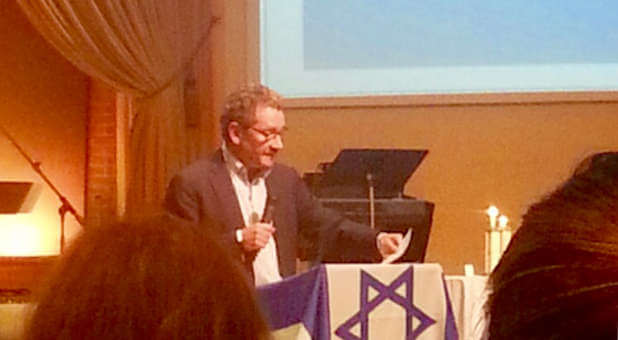In my recent drash for our Yom Kippur service, we read from some powerful Scriptures. A drash is a Hebrew word that refers to a method of exegesis of a biblical text, which was the practice in the Temple and in synagogues for thousands of years on the Sabbath and continues to this day. In this case over the high holidays, we read from the Torah (first 5 books of Moses), the Haftarah (the Prophets) and the Brit Hakodesh (The New Covenant).
Readings from Deuteronomy 18:15 that tell Israel that God will raise up a prophet like Moses from among their brothers, and that they must be careful to listen to him. From the prophet Jeremiah 31:31-34 who proclaimed to Israel that God would give them a new covenant, which would not be like the old one, which they broke, but a covenant of intimacy and personal knowledge of the Lord. And then we read from the book of Acts, where Peter boldly proclaims the Gospel in Jerusalem after the Holy Spirit had fallen on Shavuot/Pentecost.
The Scriptures Declare Who Yeshua Is
These are some pretty powerful texts that both foretell of Messiah’s coming and also proclaim His resurrection. Yeshua’s mission in His first coming was to fulfill the law through His own shed blood; to rise from the dead to defeats its curse and to begin the New Covenant, in order that His gospel could now be taken out to the world. In addition the Hebrew Scriptures are full of hundreds of prophetic writings that foretold of His coming, many of which Yeshua actually used to proclaim to Israel who He was in the flesh. And while we know that Israel’s leaders firmly rejected His visitation, there were many in Israel who believed that He was the Messiah. For how could He perform such great miracles and signs and wonders if He wasn’t from God?

What I love about Peter’s sermon here is that in all boldness He tells Israel the truth, “Men of Israel, listen to this!” And then he proceeds to tell them about the cross and resurrection. However, it was not to condemn them, but rather for their hearts to be stirred unto repentance in order that they would pass from the death of the flesh to the life of the Spirit. For even as Yeshua Himself was upon the crucifixion tree, He cried out to forgive all mankind who had put Him there, because we know that He did not come into the world to condemn it, but rather to save it from the curse of sin.
However, there is also something very strategic that is taking place here as Peter presents the good news for the first time ever in mankind’s history. As there is a transference of power and authority onto the apostles away from the priesthood that was given to Moses’ brother Aaron. For while the priesthood was still in authority until Jesus had fulfilled the law by becoming its curse (Gal.3:13), and of which He Himself submitted to, because of the order God had set up on earth up until the appointed time (read Mat. 23:1-2). After His resurrection the Holy Spirit was given to another and the power and authority of Israel shifted over to the apostles. Then God used these men from Israel to take the Gospel to the Nations that they too would be grafted into Israel’s covenants through Jesus, as the word tells us, which was now, “Built on the foundation of the apostles and prophets, with Messiah Yeshua Himself as the chief cornerstone” (Eph. 2:20).
























